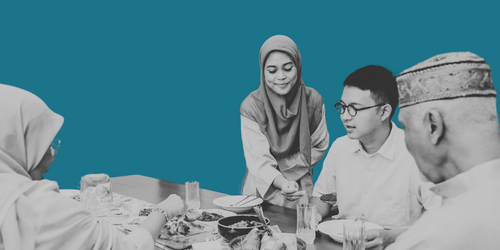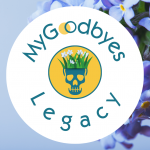To create a meaningful legacy and end-of-life plan, it’s essential to seeking out and embracing diverse perspectives. By doing so, you can reflect on the wider impact of your legacy and make a positive change for future generations.
1. Consider perspectives from different cultures, ethnicities, and religions when planning your legacy
Taking the time to learn about and consider different perspectives, we can create a more inclusive and respectful legacy plan that reflects our values and priorities, while also honouring the diversity of those around us. This involves seeking out advice and guidance from professionals, such as attorneys or financial advisors, who are familiar with the cultural or religious traditions of different communities. It can also be engaging in conversations with family members and loved ones who may have different perspectives and beliefs. Ultimately, by seeking out and embracing diverse perspectives, we can create a more comprehensive and meaningful legacy plan that reflects our values, while also honouring the richness and diversity of the world around us.
2. Seek input from family members with diverse experiences and backgrounds
Every family member has their own unique perspective based on their experiences, which shapes their values and beliefs. When we are getting input from family members with different backgrounds, we can better understand the diverse perspectives within our own family. This can involve having open and respectful conversations to learn about their needs, wishes, and concerns while actively listening without judgement. It’s important to be open to considering different opinions and perspectives, even if they don’t match our own.
3. Engage with professionals and experts from different fields to gain new perspectives
Professionals and experts may have knowledge and insights that can be relevant to the planning process, including legal, financial, or medical expertise. When we engage with professionals and experts who come from different fields, we gain a more comprehensive and holistic understanding of the issues at hand, and can make more informed decisions about our legacy and end-of-life care. It is important to seek out professionals and experts who are open to listening and learning about our unique circumstances, and who are respectful of our values and beliefs. This can involve conducting research online, attending workshops or seminars, or consulting with a trusted advisor or consultant.
4. Reflect on the impact of your legacy on future generations and diverse communities
When we plan for our legacy and end-of-life decisions, it’s important to think about how our choices will affect future generations and the broader community. This can seem like a big task, but by taking the time to reflect on our values and priorities, we can create a legacy that’s meaningful and aligns with our beliefs. One important part of this reflection is understanding the diversity of experiences and perspectives that exist within our communities. We should think about how our legacy can benefit people from different backgrounds and create an inclusive plan that reflects our commitment to creating a better world for everyone.
5. Embrace the opportunity to learn from and connect with people from diverse backgrounds
Seeking out and embracing diverse perspectives is key to creating a comprehensive and meaningful plan. Engaging with people from diverse backgrounds can help us create a more inclusive and equitable plan that reflects our commitment to creating a better world for all. We may need to seek input from family members with different experiences or consult with professionals and experts from different fields. Actively seeking out diverse perspectives, challenges our own biases and assumptions, broadens our understanding of the world, and creates a more meaningful legacy that embodies our values and promotes positive change for future generations. Check out our News section to learn more! Alternately, join our Facebook Community by clicking here and share your experiences with us.




 Choosing a Funeral Director
Choosing a Funeral Director  Alt:Endings
Alt:Endings  How to Balance Work and Life After A Break
How to Balance Work and Life After A Break  MyGoodbyes Party – Picnic in the Park
MyGoodbyes Party – Picnic in the Park  Planting Memories with Forget Me Not Seeds #ForgetMeNotChallenge
Planting Memories with Forget Me Not Seeds #ForgetMeNotChallenge  Family history and legacy
Family history and legacy  The Briefing: Vicki Gulliver Head of the Probate team at Lodders
The Briefing: Vicki Gulliver Head of the Probate team at Lodders  Words With….David Hieatt
Words With….David Hieatt